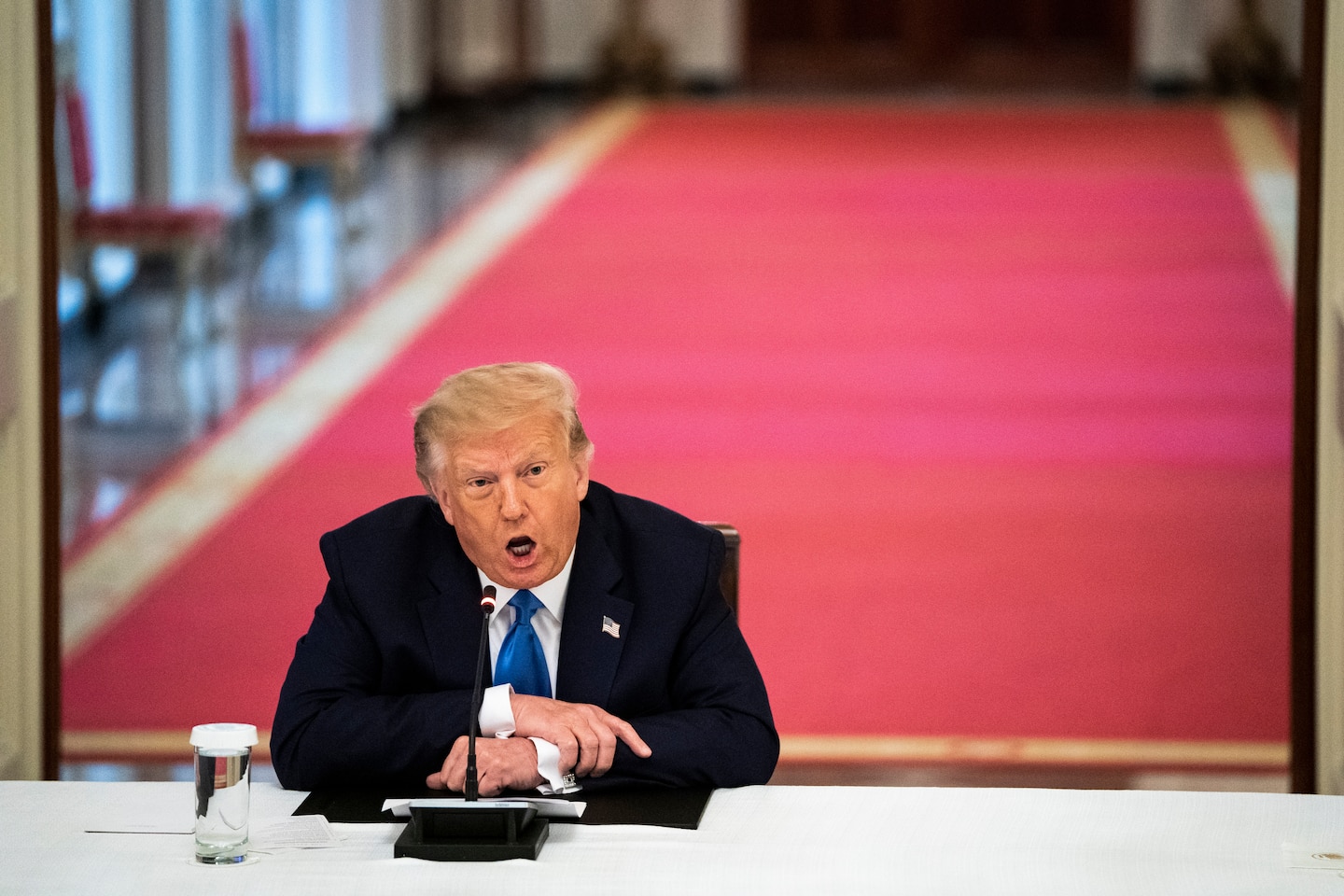Trump’s law-and-order message flops

The problem is that it hasn’t taken hold, according to multiple recent polls. Quite the opposite, in fact.
The most recent survey comes from The Washington Post and ABC News. The poll, which showed Biden leading by 15 points overall, asked people which candidate they trust more on the issue of “crime and safety.” Registered voters picked Biden by a nine-point margin, 50 percent to 41 percent.
The finding echoes what we’ve seen from other pollsters. A Pew Research Center poll from mid-June showed Biden led Trump 46 to 43 percent on which candidate could “effectively handle law enforcement and criminal justice issues.” A Kaiser Family Foundation poll from late June directly employed the “law and order” phrasing, finding voters trusted Biden to handle maintaining it by a 51-41 percent margin — virtually identical to the Post-ABC poll.
To the extent that there is a law-and-order candidate at this point, it appears to be Biden.
There are two other key points.
One is that Trump is somewhat backed into a corner on this. Despite the Black Lives Matter movement being increasingly popular and American voters being increasingly sympathetic to it, Trump’s base is decidedly reluctant to embrace (and is even suspicious of) its cause. So rather than explicitly cast judgment on that difficult political question, Trump has instead sought to shift the debate. He has opted to cast protesters as ne’er-do-well rioters and looters and his own presidency as the antidote to such lawlessness. Thus the scene in Lafayette Square last month, his comments about how law enforcement needs to “dominate” the streets and his constant warnings about antifa.
But despite that effort, this isn’t voters’ priority — even when you set aside things such as the coronavirus.
A Washington Post Schar School poll last month asked people whether they thought it was more important to have a president who could heal racial divisions or one who could restore security by enforcing law. Voters chose the former by a 47-38 percent margin.
Similarly, a New York Times/Siena College poll recently asked whether people prefer a presidential candidate who focuses on the cause of the protests — even when the protests go too far — or whether they want someone who focuses mostly on getting tough on unruly protesters. Voters this time chose the former by an even more lopsided margin, 63-31 percent — nearly 2 to 1.
Polling these questions can be difficult. It’s possible for voters to care about both — to like a law-and-order message even as they sympathize with the protests. It’s also arguably an issue that could appeal to white voters who don’t necessarily have to worry about being mistreated by police, but who might come to worry about their community’s safety. That seems to be the gamble, anyway.
But even by that measure, it’s not something that has accrued to Trump’s benefit. And that brings us to our second point: Trump actually appears to have regressed on this question. In late 2016, voters preferred him over Democratic nominee Hillary Clinton 47-44 percent on which “candidate would do a better job handling reducing crime,” according to a CBS News poll. Likewise, an NBC News/Wall Street Journal poll in August 2016 showed Trump with an eight-point edge on which candidate would do better “dealing with crime.”
What’s particularly remarkable about the new numbers is, as those 2016 polls showed, this is a question about which Republicans generally have the edge, because they’ve been viewed as the law-and-order party.
Trump, during the 2016 campaign, also emphasized law and order — specifically crime committed by undocumented immigrants, but also by painting an often dystopian picture about the broader state of crime in the United States, which he called “carnage.” Given that, and perhaps given the fact that all these scenes Trump is warning about have occurred on his watch, running as the law-and-order candidate would seem to be more difficult. Unlike Nixon in 1968, he’s the incumbent with a track record.
Things can change in the weeks ahead, but thus far Trump seems to yet again be betting heavily on an issue that doesn’t reflect particularly well upon him.






